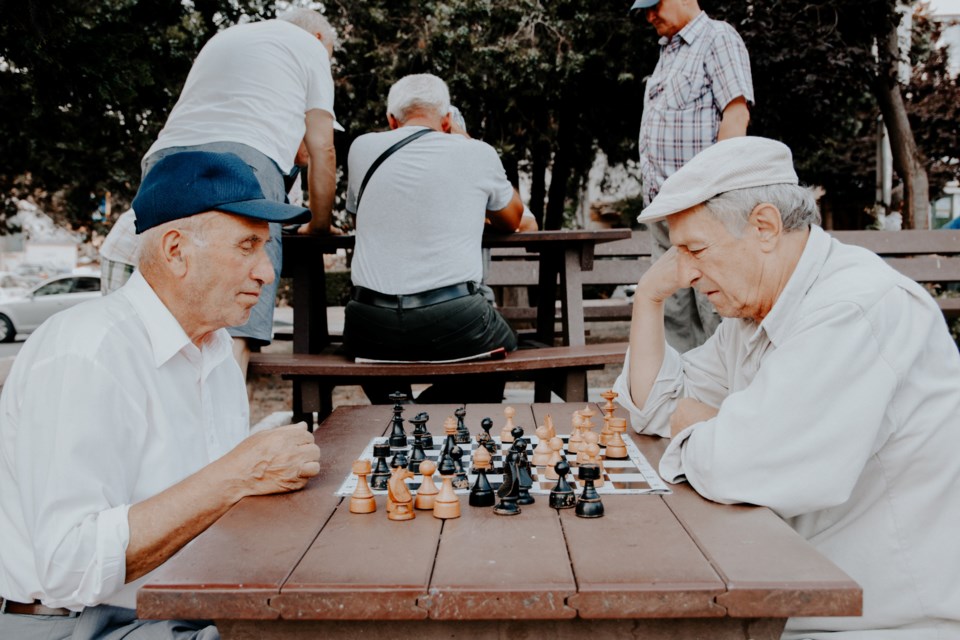The Longmont Leader accepts contributions, photos, and op-eds for publication from community members, business leaders and public officials on local topics. Publication will be at the discretion of the editor and published opinions do not represent the views of the Longmont Leader or its staff. To submit a contribution, email [email protected].
We are all wired for emotional connection and that doesn’t stop when we retire. In my experience as a geriatrician, seniors who have family or a strong support network by their side are more likely to remain living in their homes longer, get the care they need, and have better health outcomes. Unfortunately, seniors who are more isolated with less of a social support system, experience more challenges and often don’t receive important care.
Through my practice, I learned the path to better health for our seniors isn’t always through the doctor’s office. When seniors are a part of an active community, their health outcomes improve. But in many instances, these communities have been less active due to COVID-19. The lack of community support throughout the pandemic has exacerbated the impact of social isolation and mental health challenges, which affect quality of life and a sense of purpose and connection as our seniors age.
The United Health Foundation’s 10th annual “America’s Health Rankings Senior Report” – which highlights a 10-year analysis of improvements, challenges and disparities in health and well-being across all 50 states – reflects this reality for older adults in America who felt the impact of the pandemic in many ways.
Unfortunately, the Senior Report revealed a decade of worsening mental and behavioral health challenges among older adults. In the last 10 years, nationally, we saw a 13% increase in the suicide rate, a 9% increase in the prevalence of depression, and an 8% increase in the prevalence of frequent mental distress among adults 65 and older. And drug deaths increased 147% among seniors, ages 65-74.
The behavioral health measures in Colorado were most concerning in this year’s report, with the state ranking 43rd for suicide among those 65 and older. Additionally, Colorado ranked 37th in excessive drinking.
The correlation between connection, community and independent living for seniors is so important to achieving healthy outcomes and a higher quality of life, including those behavioral health measures. But when someone doesn’t have a relational or chosen family, it is up to society to fill that need.
Colorado ranked 5th overall healthiest state in this year’s Senior Report, which is very strong. If the state is looking to continue to invest in the health of its seniors, there is a strong case for supporting programs that center on connection and community, especially for seniors who don’t have a built-in familial network of their own.
A study published in Health Services Research in 2013 found that increases in home- and community-based services for older adults, such as home-delivered meals, congregate meals or community centers, were associated with a decrease in the rate of low-care residents in nursing homes. And data from the 2018 Older Americans Act Report to Congress also suggested community support services are effective — 65% of congregate meal clients and 92% of home-delivered meal clients reported that these services helped them continue to live independently at home. Increasing the number of licensed home health care workers per capita is another area of opportunity.
The AARP Foundation offers a program, Connect2Affect, that helps seniors who are experiencing isolation or loneliness. This program offers solutions in collaboration with the Gerontological Society of America, Give an Hour, USAging and UnitedHealth Group. Connect2Affect uses research to create a deeper understanding of loneliness and isolation, draw crucial attention to the issue, and catalyze action to end social isolation among older adults.
It’s clear that programs that support behavioral health and social services for older adults can help them maintain independence and hopefully, improve behavioral health measures.
We need to help the seniors in our lives reconnect with their communities and activities they have enjoyed in the past but have not yet returned to on a regular basis. And we need to bolster programs that offer evidence-based community support. Equipped with this data, I hope we can work together to address emerging health disparities among older Americans so they can remain independent, in their homes, and connected to their communities.
Rhonda L. Randall, D.O., is the chief medical officer of UnitedHealthcare Employer & Individual, a business segment of the nation’s largest health care company, UnitedHealth Group. Dr. Randall is a fellowship-trained geriatrician with a focus on hospice and palliative medicine, and is board certified in family practice. She completed her internship, residency, chief residency and fellowship at Florida Hospital in Orlando.



